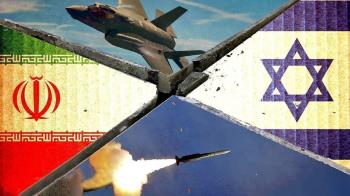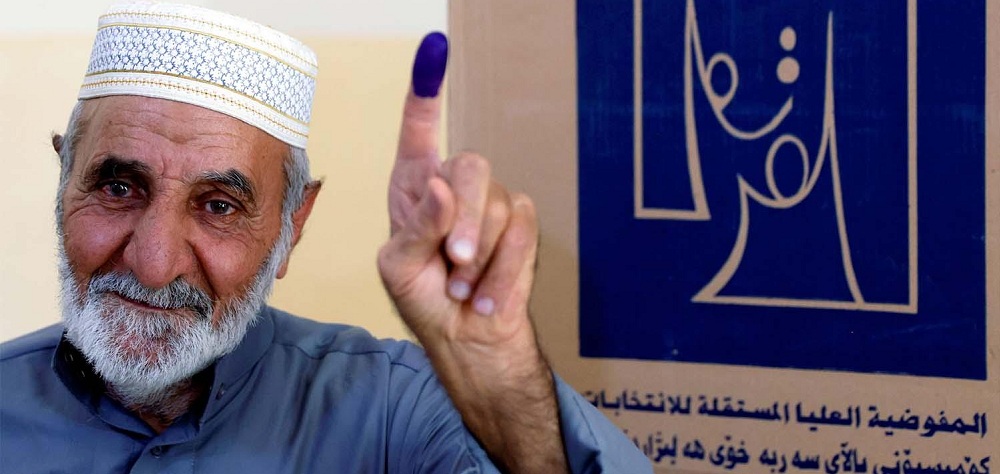Alwaght- Iraq held its fifth parliamentary election on Sunday. 3,249 candidates from 21 coalitions and 109 parties along with some independent figures raced for 329 seats. This election was supposed to be held in 2022 in a regular schedule but due to the critical situation in the country, early vote was scheduled for October. The recent vote was Iraq's fifth since the constitution was approved in 2005. The previous four were held in 2006, 2010, 2014 and 2018.
Although the final results have not yet been announced by the Iraqi Independent High Electoral Commission (IHEC), the most notable is the record of the lowest turnout in all the years since 2003. Held under the new formula, known as constituency model, the October 10 vote recorded about 41 percent of the total turnout, the lowest level since the first election in January 2005. Here is a question: Why was the participation level low, even lower than the May 2018 election?
Iraqis not welcoming early election
According to the IHEC, the turnout was 41 percent. Dohuk province in northern Iraq recorded the highest turnout with 54 percent, said the IHEC. This turnout rate comes while in 2018 44.5 percent turnout surprised the political observers and shocked the political sections. The country before these two elections did not have a turnout rate lower than 61 percent. For example, in 2010 it was 62 percent and in 2014 it was 61 percent.
Why is the turnout low?
Several reasons have resulted in low participation:
Flagging economy and youth's frustration with election-driven changes: Undoubtedly, the first and most important factor in cutting the desire of Iraqi citizens to participate in the parliamentary elections is the turbulent economic circumstances in the country and the frustration of the new generation with the change in the tough current situation through elections and political participation. Economy has been the greatest problem for the Iraqi citizens in the years since 2003, and as a major obstacle, it has occupied the minds and energy of the Iraqi political scene and government. Unbalanced economic development, sharp declines in economic indicators, inflation, unemployment, and declining per capita incomes over the past 18 years have left citizens feeling the pinch and thus more frustrated with parties and politicians than ever before.
The first factor of the Iraqi government's economic failure at home is unbalanced economic development, which has had a profound effect on citizens' reluctance to go to the polls. According to statistics released by the Peace Foundation, Iraq has the highest fragility among the nine countries in the Persian Gulf in terms of the Fragile States Index. In fact, unbalanced economic development means parts of the society enjoy economic development while other parts do not, something signaling the government's failure to build a justice-based economy where all citizens enjoy economic prosperity and welfare. The highest rate of economic gaps among other Arab states makes one thing clear: Discontentment among the people has become a fundamental issue.
The sharp economic downturn is another factor in the Iraqi government's failure in the years since 2003, which has had a significant impact on shaping the unwillingness of Iraqi citizens to take part in the elections. Historically and before the 2003 invasion of Iraq, the economic situation in the Arab country was in a severe downturn. Under the Ba'athist regime, Iraq had a top-down economy. Many of the industrial infrastructure that resulted from heavy government subsidies was destroyed in the Iraq-Iran war, the two Persian Gulf wars, or by government negligence. After 1991, Iraq suffered from declining GDP, chronic inflation, and currency devaluation; In particular, there was a lack of foreign capital and the accumulation of foreign debt.
In recent years, declining oil prices and financial needs for the anti-ISIS war and the outbreak of the coronavirus epidemic have led to a sharp deterioration in economic activity, public finances, and the balance of payments. For example, economic growth, which was about 2.5 percent in 2014, fell by 0.5 percent in 2015. Also, after 2014, the Iraqi production power walked in a declining path, and things even became worse after CIVID-19.
|
Rate of Change |
GDP |
Year |
|
0.01 |
234.65 |
2014 |
|
-24.26 |
177.72 |
2015 |
|
-1.12 |
175.15 |
2016 |
|
11.60 |
195.47 |
2017 |
|
14.71 |
224.23 |
2018 |
Rife distrust in the government: Another reason for the low turnout of Iraqi citizens is broadening lack of trust of the government's efficiency. When it comes to the political equations of the region, the main responsibility for all developments must undoubtedly be explored from a "state-centered" perspective. As a matter of fact, anyone becoming prime minister in Iraq now has a certainty ahead: Due to the big economic challenges and problems, failure to fulfill the promises and meet the expectations of the citizens is unavoidable.
In the post-2003 situation, despite the lifting of economic sanctions on Iraq and the hope of citizens to improve the governance, the rentist system governing the Iraqi political community has institutionalized economic, social and even political inequality in a broad sense. In terms of indicators such as economic transparency, Iraq is always among the lowest countries in the world and even the production of more than 5 million barrels of oil per day could not heal the deep wounds of the society. In addition, the tribal and sectarian structure of Iraqi society, which consists of Shiite Arabs, Sunni Arabs, Kurds, Turkmen, and several other ethnic groups, makes Iraq prone to crisis.
The fact is that the state-making process in Iraq has not succeeded yet and there are still sectarian groups that put tribal order on top of the rule of law.
Dominance of undemocratic political culture: Although the government performance and political governance are blamed as the causes of the low turnout, it should be said that they are not all the cause. Beside the big bugs of the governments and governance, in the political culture, the tribal principles are prioritized over the modern citizenship vision.
The decades of dictatorship in Iraq before 2003, along with the weaknesses of the novel party-forming experience over the past 18 years, have strengthened the roots of a non-participatory political culture and a pessimistic view of the power of democratic institutions and structures to make a change. Actually, ignorance of the election and the power of the right of voting is not a paramount part of the political thought of the Iraqis.
For example, as a proof to this claim, we can refer to the ignorance of the calls of the high-profile Shiite cleric Ayatollah Sayed Ali al-Sistani for the people to turn out massively. In 2014, when ISIS emerged and seized parts of the country, nearly all of the citizens responded affirmatively to his fatwa and mobilized in various brigades under Popular Mobilization Forces (PMF) for battling the terrorist organization. But the same people turned down his invitation for political mobilization and self-determination and thus maximum participation did not materialize. This apparently demonstrates the entrenched non-participatory political culture in the collective mind of the Iraqi society.



























